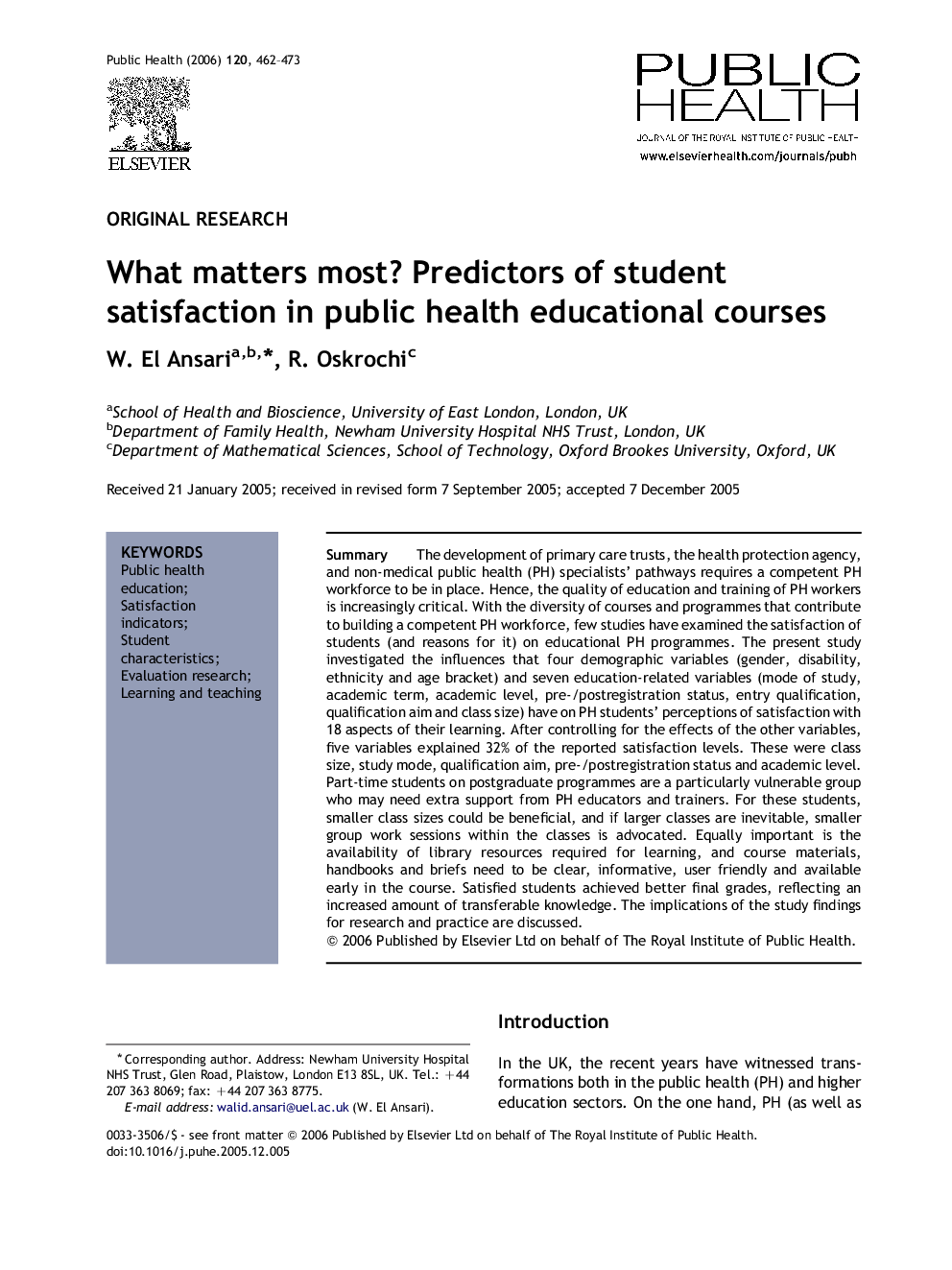| Article ID | Journal | Published Year | Pages | File Type |
|---|---|---|---|---|
| 1088987 | Public Health | 2006 | 12 Pages |
SummaryThe development of primary care trusts, the health protection agency, and non-medical public health (PH) specialists' pathways requires a competent PH workforce to be in place. Hence, the quality of education and training of PH workers is increasingly critical. With the diversity of courses and programmes that contribute to building a competent PH workforce, few studies have examined the satisfaction of students (and reasons for it) on educational PH programmes. The present study investigated the influences that four demographic variables (gender, disability, ethnicity and age bracket) and seven education-related variables (mode of study, academic term, academic level, pre-/postregistration status, entry qualification, qualification aim and class size) have on PH students' perceptions of satisfaction with 18 aspects of their learning. After controlling for the effects of the other variables, five variables explained 32% of the reported satisfaction levels. These were class size, study mode, qualification aim, pre-/postregistration status and academic level. Part-time students on postgraduate programmes are a particularly vulnerable group who may need extra support from PH educators and trainers. For these students, smaller class sizes could be beneficial, and if larger classes are inevitable, smaller group work sessions within the classes is advocated. Equally important is the availability of library resources required for learning, and course materials, handbooks and briefs need to be clear, informative, user friendly and available early in the course. Satisfied students achieved better final grades, reflecting an increased amount of transferable knowledge. The implications of the study findings for research and practice are discussed.
